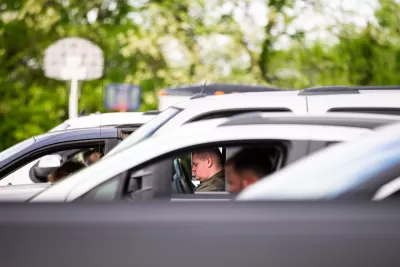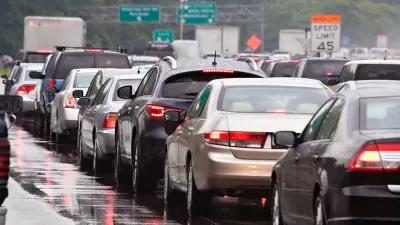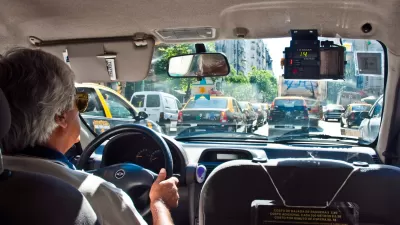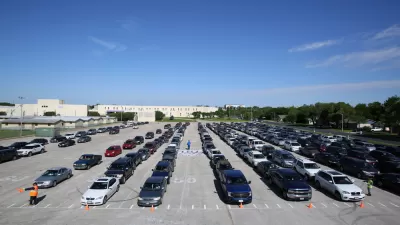A massive survey on the sentiments of Americans during the COVID-19 pandemic reports that many people are less likely to ride public transit, or rely on Uber and Lyft, in the future.

New survey data from IBM’s Institute for Business Value "gives a glimpse into how people will utilize transportation, both public and private, once the world reopens," according to an article by Colin Beresford. IBM surveyed 14,000 people and discovered that many respondents are reevaluating their transportation preferences.
Public transportation, ride-sharing services, and personal transportation are all things that people reported that they were going to approach differently. IBM surveyed 14,000 people (for the automotive portion of the survey) in April, and more than 17 percent said that they intend to use their personal vehicle more often due to COVID-19.
The numbers also include bad news for shared modes of transportation:
Of those who regularly used public transit such as buses, subways, or trains before the pandemic, 20 percent said that they no longer will do so, and another 28 percent said they will use it less frequently. When it comes to ride sharing, a majority of the respondents said they would use the services less often or stop using them completely.
One factor noted in the survey results that might control the potential for gridlock and air pollution to overwhelm the country as people use cars more than ever to socially isolate is the economic uncertainty that means many people who want to buy cars or drive their current cars more often simply won't be able to afford the option.
FULL STORY: Transportation Isn’t Going to Be the Same after Pandemic: Study

Alabama: Trump Terminates Settlements for Black Communities Harmed By Raw Sewage
Trump deemed the landmark civil rights agreement “illegal DEI and environmental justice policy.”

Planetizen Federal Action Tracker
A weekly monitor of how Trump’s orders and actions are impacting planners and planning in America.

The 120 Year Old Tiny Home Villages That Sheltered San Francisco’s Earthquake Refugees
More than a century ago, San Francisco mobilized to house thousands of residents displaced by the 1906 earthquake. Could their strategy offer a model for the present?

Opinion: California’s SB 79 Would Improve Housing Affordability and Transit Access
A proposed bill would legalize transit-oriented development statewide.

Record Temperatures Prompt Push for Environmental Justice Bills
Nevada legislators are proposing laws that would mandate heat mitigation measures to protect residents from the impacts of extreme heat.

Downtown Pittsburgh Set to Gain 1,300 New Housing Units
Pittsburgh’s office buildings, many of which date back to the early 20th century, are prime candidates for conversion to housing.
Urban Design for Planners 1: Software Tools
This six-course series explores essential urban design concepts using open source software and equips planners with the tools they need to participate fully in the urban design process.
Planning for Universal Design
Learn the tools for implementing Universal Design in planning regulations.
Clanton & Associates, Inc.
Jessamine County Fiscal Court
Institute for Housing and Urban Development Studies (IHS)
City of Grandview
Harvard GSD Executive Education
Toledo-Lucas County Plan Commissions
Salt Lake City
NYU Wagner Graduate School of Public Service





























